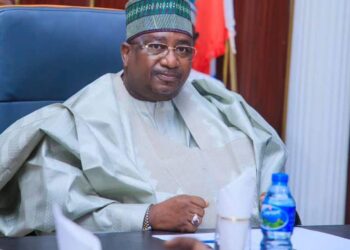A former executive secretary, National Universities Commission (NUC), Prof. Julius Okojie, has called on Nigerian leaders to make education at the basic and secondary levels compulsory.
Okojie made the call Friday at the launch of the Thomas Agnes Christiana Okojie (TACO) Charity Foundation, named after his parents and wife.
The event also featured the inaugural edition of the Julius Okojie lecture series entitled: “The Future of the Nation’s University System.”
He said that Nigerian leaders owe every Nigerian child free primary and secondary education to enable them to prepare for livelihood.
Okogie said students studying under the tree would eventually be half-baked, which he said is not good for the country’s growth and development.
He said basic and secondary education was not made free at the current dispensation because it lacks the appropriate structure.
“Local, state and the federal government structures are not working.
“The federal government is still doing basic education when it is the function of local government, secondary schools for states, but the federal government is still doing it.
”Having worked through the public service, I know that a girl who has no education does not have a space in this country. So, I have been promoting that crusade informally using my family house at Uromi, in Edo state.
”I have decided it will be the headquarters of the foundation. Education is the least you can give to kids and there is so much work to do in this country,” he said.
The guest speaker, Prof. Desireé Guobadia, in her presentation, called for reconsideration of Higher School Certificate (HSC) programmes, saying the maturity the HSC gave was missing in the integration of students into higher institutions.
Guobadia said that the certificate would provide the much needed training platforms for students to get more maturity.
”I want to emphasise the place of proper planning for student enrolment and also following proper budgeting,” she said.
She identified the place of aligning education goals with national goals and policies, saying the 6-3-3-4 system of education should lead to acquisition of knowledge and skills to make room for those not proceeding to higher institutions.




